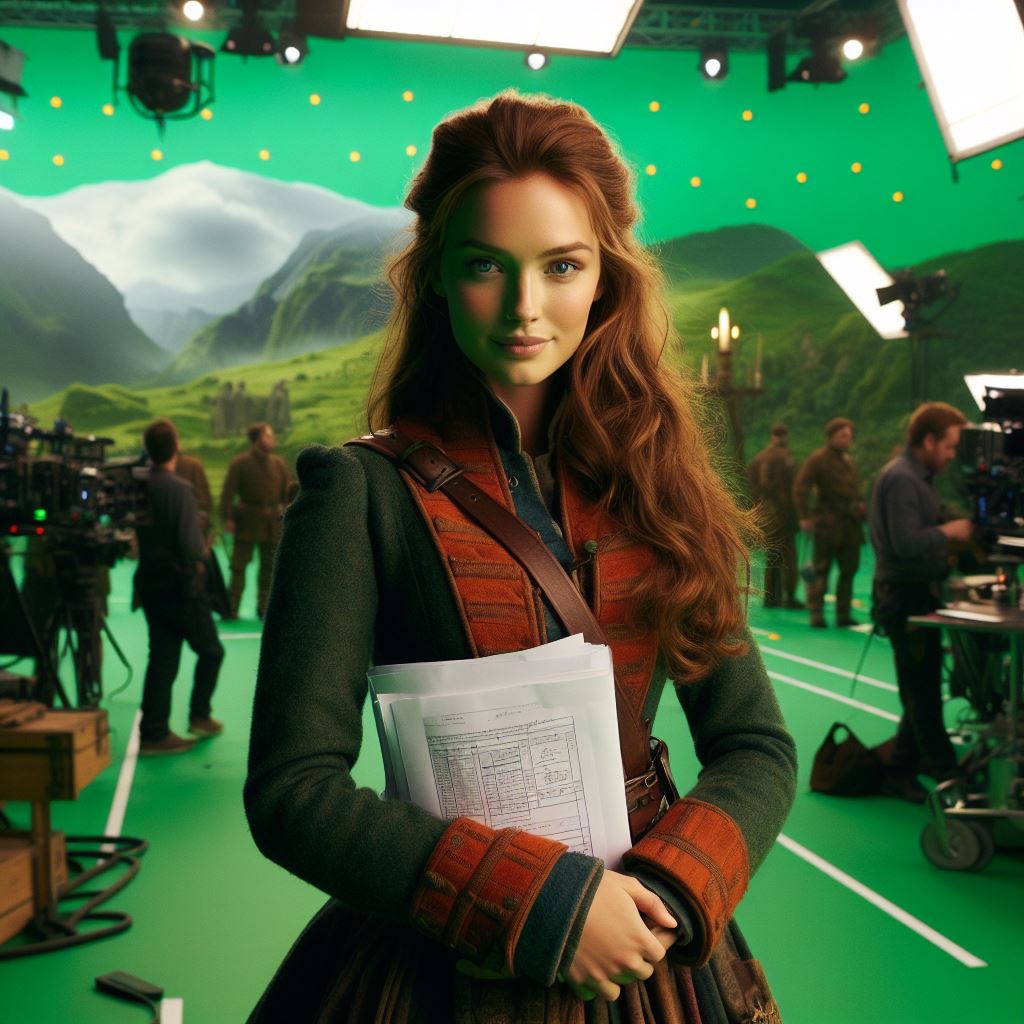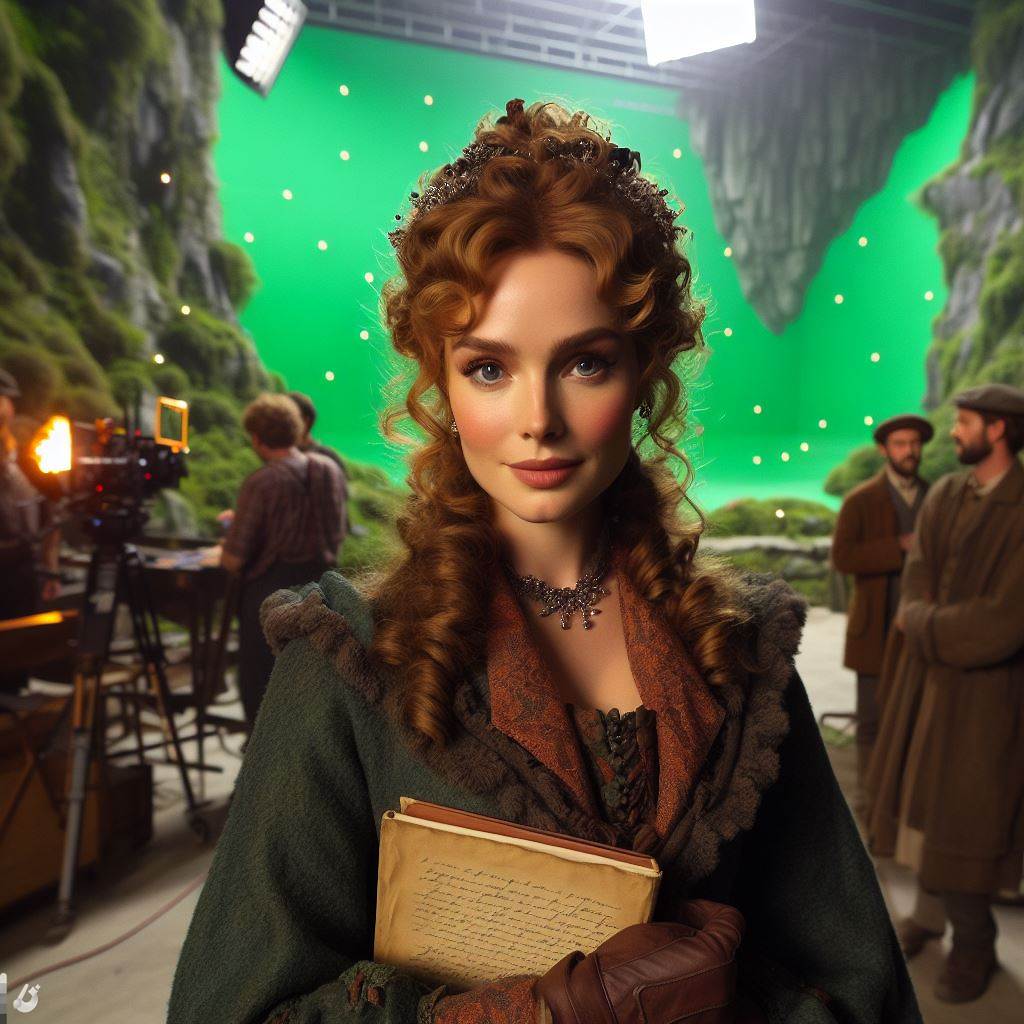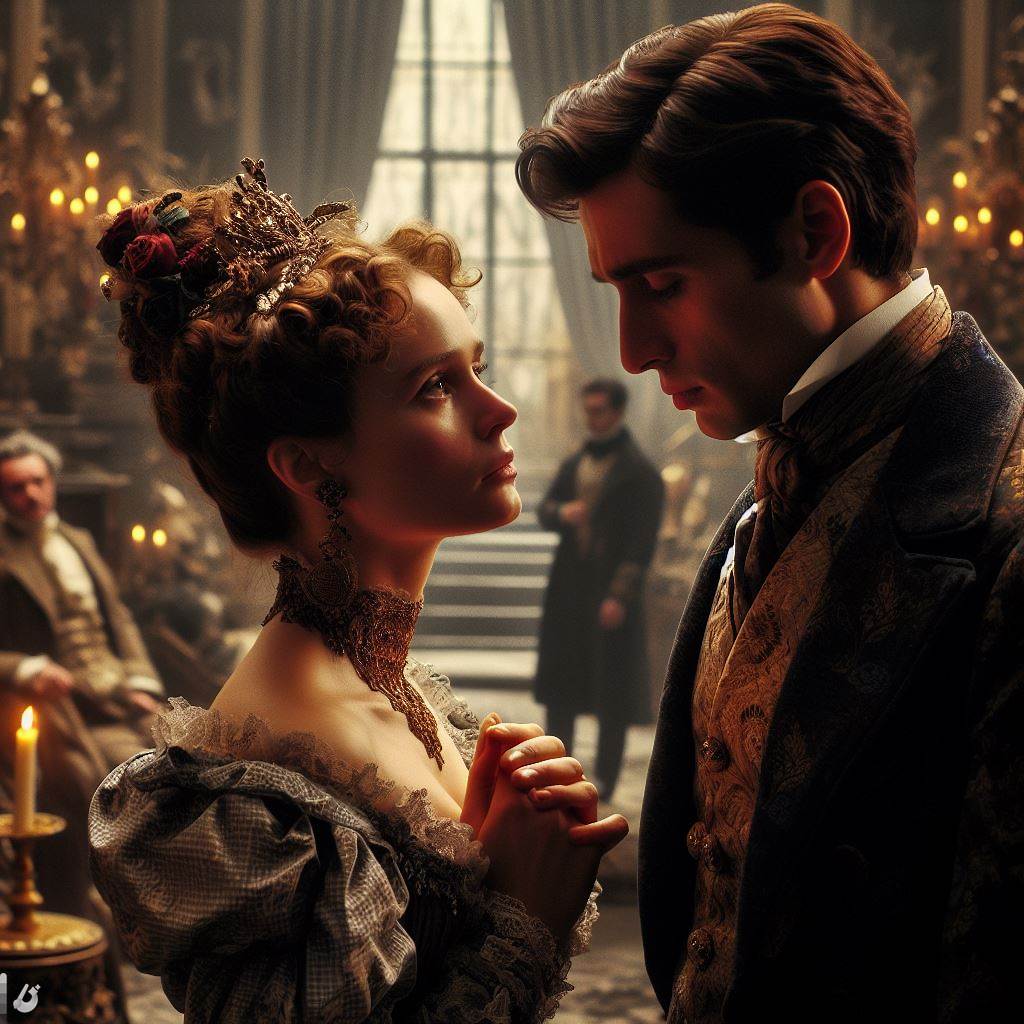Introduction
A. Transitioning Talents: UK Actors on Stage and Screen
British actors exhibit a remarkable shift from thespian brilliance on stage to captivating performances on screen. Their journey highlights a unique versatility seldom witnessed.
B. The Pervasive Popularity Across Mediums
UK actors bask in the limelight on both stage and screen, with iconic performances in globally acclaimed theatre productions and blockbuster films.
Their ability to seamlessly transition showcases their artistic prowess.
C. Thesis: Versatility Unveiled
Actors from the UK seamlessly traverse the demanding realms of stage and screen, proving that the spotlight’s glow is not confined to a single medium.
This section explores their successful transitions, unraveling the intricacies of their craft and the industry dynamics that facilitate such versatility.
Join us on a journey through the transformative careers of these thespian powerhouses.
The Success of UK Actors in Stage Productions
A. The Rich Theatrical Tradition in the UK
The UK has a long and esteemed history in the world of theater and performance.
From Shakespearean plays to modern productions, the UK has always been at the forefront of the theatrical world.
London’s West End is renowned for its vibrant theater scene, attracting audiences from all over the world.
UK actors are given the opportunity to train and perform in prestigious theaters with rich traditions.
B. Training and Experience of UK Actors in Stage Productions
UK actors undergo rigorous training in some of the best drama schools in the world.
Institutions like the Royal Academy of Dramatic Art (RADA) and the Royal Central School of Speech and Drama provide top-notch training.
Actors learn various techniques, including voice control, physicality, and character development.
Stage productions allow actors to develop their skills in a live setting, honing their craft through countless performances.
C. Renowned UK Stage Actors and Their Notable Performances
Sir Laurence Olivier is a prime example of a UK stage actor who achieved great success.
Personalized UK Career Consulting
Receive tailored career guidance designed just for you. Get actionable steps and expert support to boost your career in 1-3 days. Take control of your career now.
Get StartedHis iconic portrayal of Hamlet in 1948 cemented his reputation as an exceptional stage performer.
Another notable UK stage actor is Dame Judi Dench, known for her captivating performances in plays like “Macbeth” and “King Lear”.
Sir Ian McKellen’s portrayal of Gandalf in “The Lord of the Rings” trilogy showcased his incredible talent.
D. Skills Acquired on Stage that Contribute to Successful Transitions to Screen Acting
Acting on stage teaches UK actors how to project their voices and emote effectively, skills that translate well to screen.
The stage requires actors to be precise with their movements, which enhances their physicality in film and television roles.
Performing in front of a live audience also helps actors develop a strong presence and adaptability, key qualities for screen acting.
Stage actors are accustomed to the pressure and intensity of live performances, preparing them for the demands of the camera.
Most importantly, UK actors have a distinct advantage in transitioning from stage to screen due to their training and experience.
The rich theatrical tradition in the UK provides a strong foundation for actors to refine their skills.
With numerous examples of successful stage actors making a seamless transition to screen, it is evident that the skills acquired on stage significantly contribute to their success in screen acting.
Read: Cultural Impact of UK Actors on Global Cinema
Challenges Faced by UK Actors in Transitioning to Screen
Transitioning from stage to screen is not an easy task as it comes with its fair share of challenges.
A. Key differences between stage and screen acting techniques
Stage acting requires larger movements and vocal projection to reach a distant audience, while screen acting requires subtlety and intimacy.
Screen acting involves capturing minute facial expressions and gestures, whereas stage acting demands broader physicality.
Your Dream Job Starts with a Perfect CV
Get a tailored CV and cover letter that captures your unique strengths and stands out in your industry. Let us help you make an unforgettable first impression.
Get StartedStage actors must project their voices to fill the entire theater, while screen actors rely on delicate microphone techniques.
Stage actors have the luxury of performing a role from start to finish, while screen actors may shoot scenes out of order.
B. Adjustment required in performance style, vocal projection, and audience interaction
Stage actors need to adjust their performance style to suit the intimacy of the camera, focusing on subtlety rather than grand gestures.
Vocal projection must be toned down for the screen, as microphones can pick up even the softest whispers.
Stage actors are accustomed to engaging with a live audience, but on screen, they must adapt to performing for cameras and crew members.
C. The competitive nature of the film industry and abundance of talented actors
The film industry is highly competitive, with numerous actors vying for limited roles in movies, TV shows, and commercials.
The abundance of talented actors means that stage actors face stiff competition when transitioning to the screen.
Stage actors must prove their versatility and adaptability to stand out among the numerous actors already established in the film industry.
D. Potential typecasting associated with stage actors transitioning to screen
Stage actors may face the challenge of being typecast in similar roles when they transition to screen acting.
Casting directors often associate stage actors with specific character types, making it difficult for them to explore diverse roles on screen.
It takes time and effort for stage actors to break free from the labels and stereotypes associated with their previous stage performances.
Essentially, UK actors face several challenges when transitioning from stage to screen.
They must adapt their acting techniques, adjust their performance style and vocal projection, and engage with a vastly different audience.
Additionally, the high competitiveness of the film industry and the potential for typecasting can pose obstacles for stage actors.
Optimize Your LinkedIn for Success
Boost your LinkedIn profile with a professional bio, keyword-rich headline, and strategic recommendations that attract recruiters. Stand out from the crowd and get noticed.
Optimize NowHowever, with dedication, versatility, and perseverance, UK actors can overcome these challenges and establish themselves successfully in the world of screen acting.
Read: Surviving Auditions: Tips from UK Actors

Successful UK Actors Who Made the Transition
Several UK actors have successfully transitioned from stage to screen, establishing themselves as versatile performers in both mediums.
Let’s explore some examples of these actors and their notable screen roles and achievements.
1. Judi Dench
Judi Dench is a celebrated actor known for her remarkable stage and screen performances.
She made a successful transition to the screen with her role as Queen Victoria in the film “Mrs. Brown” (1997), which earned her an Academy Award nomination.
Furthermore, Dench’s portrayal of M in the James Bond series has become iconic, with her sharp and commanding presence adding depth to the franchise’s spy thrillers.
She has won numerous awards for her work on-screen and continues to captivate audiences with her talent.
Her adaptation process involved honing her natural stage presence and subtly adapting it for the camera.
Dench effortlessly translated her commanding voice and expressive gestures into nuanced performances on screen.
This ability to transition seamlessly between stage and screen has showcased Dench’s remarkable versatility, as she has excelled in a range of genres, including dramas, comedies, and period pieces.
2. Ian McKellen
Ian McKellen is another UK actor who has left an indelible mark in both stage and screen performances.
His notable screen role as Gandalf in “The Lord of the Rings” trilogy introduced him to a new generation of fans worldwide.
McKellen’s portrayal of the powerful wizard earned him critical acclaim and numerous accolades.
His ability to bring depth and gravitas to the character made Gandalf one of the most memorable and beloved figures in modern cinema.
Adapting from the stage to the big screen, McKellen tapped into his vast experience in Shakespearean plays and brought sophistication and nuance to his film roles.
McKellen’s range spans across genres, showcasing his versatility.
From his captivating performance as Magneto in the “X-Men” franchise to his poignant portrayals in dramas like “Gods and Monsters,” he continues to captivate audiences with his talent.
3. Helen Mirren
Helen Mirren is a highly acclaimed actor known for her impressive stage and screen career.
Her notable screen roles include her portrayal of Queen Elizabeth II in “The Queen” (2006), for which she won an Academy Award.
Mirren’s ability to embody complex characters with grace and authenticity has made her one of the most respected actors in the industry.
Her on-screen presence often commands attention and captivates audiences.
As with other successful UK actors, Mirren’s transition from stage to screen required a subtle calibration of her performance style.
She adapted her larger-than-life stage presence into compelling and realistic screen portrayals.
Mirren’s range as an actor is evident in her ability to seamlessly transition between genres.
From gritty crime dramas like “Prime Suspect” to blockbuster action films like “Red,” she proves her versatility time and again.
In general, these successful UK actors have not only made a seamless transition from stage to screen but have also excelled in their screen roles, showcasing their versatility and range.
Their notable achievements and ability to overcome challenges depict their adaptability and talent in different genres, making them icons of both stage and screen.
Read: Balancing Act: UK Actors and Personal Life
Strategies for UK Actors to Transition to Screen
Transitioning from stage to screen requires UK actors to develop specific skills and adjust their approach.
In this section, we will explore several strategies that can help actors successfully make this transition:
A. Importance of Training and Acquiring Screen-Specific Skills
Training is crucial for UK actors looking to transition to screen acting. Unlike the stage, the camera picks up every detail and nuance of a performance.
Actors must understand the technical aspects of working in front of a camera, such as hitting marks, adjusting performances for different shot sizes, and working with on-screen partners.
Acquiring screen-specific skills can be done through workshops, classes, or even hiring a private coach.
By investing time and effort into enhancing their screen acting abilities, UK actors can increase their chances of success in the highly competitive world of film and television.
B. Benefits of Collaborating with Experienced Screen Actors and Directors
Collaborating with experienced screen actors and directors can provide invaluable guidance and insights for UK actors transitioning to the screen.
These professionals have a wealth of knowledge and experience in the medium and can offer valuable feedback and advice.
Working alongside seasoned screen actors allows UK actors to observe their techniques and learn from their expertise.
Directors, especially those experienced in working with actors, can provide valuable instructions and help navigate the differences in performing for the camera.
C. Significance of Networking and Building Connections within the Industry
Networking is crucial for UK actors aiming to transition to screen acting.
Building connections within the industry can lead to potential opportunities and exposure to casting directors, producers, and fellow actors.
Actors can attend industry events, film festivals, and join professional organizations to expand their network.
Engaging in social media platforms and online communities dedicated to the screen industry can also facilitate valuable connections and collaborations.
D. Role of Agents and Casting Directors in Helping Actors Transition to Screen
Agents and casting directors play a vital role in assisting UK actors in their transition to the screen.
Agents specialize in representing actors and have valuable industry connections that can help actors secure auditions.
When searching for an agent, UK actors should look for those with a proven track record in securing screen roles.
With their industry expertise, agents can guide actors in making strategic career choices and provide valuable feedback on their screen auditions.
Casting directors are responsible for selecting actors for specific roles.
UK actors should strive to build relationships with casting directors, as they are often the gatekeepers to screen opportunities.
Showing professionalism, dedication, and talent in auditions can leave a lasting impression on casting directors.
In essence, UK actors looking to transition from the stage to the screen should prioritize training, acquiring screen-specific skills, collaborating with experienced professionals, networking extensively, and seeking representation from agents with expertise in the screen industry.
By employing these strategies and adapting their approach, UK actors can increase their chances of achieving success in the highly competitive world of film and television.
Read: UK Theatre vs. Film: Actors’ Varied Skills
Conclusion
UK actors have displayed immense success in transitioning from stage to screen.
Their versatility and talent have been evident in various mediums, showcasing their adaptability.
Aspiring UK actors can take inspiration from these achievements and have a positive outlook on making the transition themselves.
It is encouraged to delve further into research and explore this topic, as it holds valuable insights into the journey of UK actors in the world of entertainment.
[E-Book for Sale]
500 Cutting-Edge Tech Startup Ideas for 2024 & 2025: Innovate, Create, Dominate
$19.99 • 500 Tech Startup Ideas • 62 pages
You will get inspired with 500 innovative tech startup ideas for 2024 and 2025, complete with concise descriptions to help you kickstart your entrepreneurial journey in AI, Blockchain, IoT, Fintech, and AR/VR.



